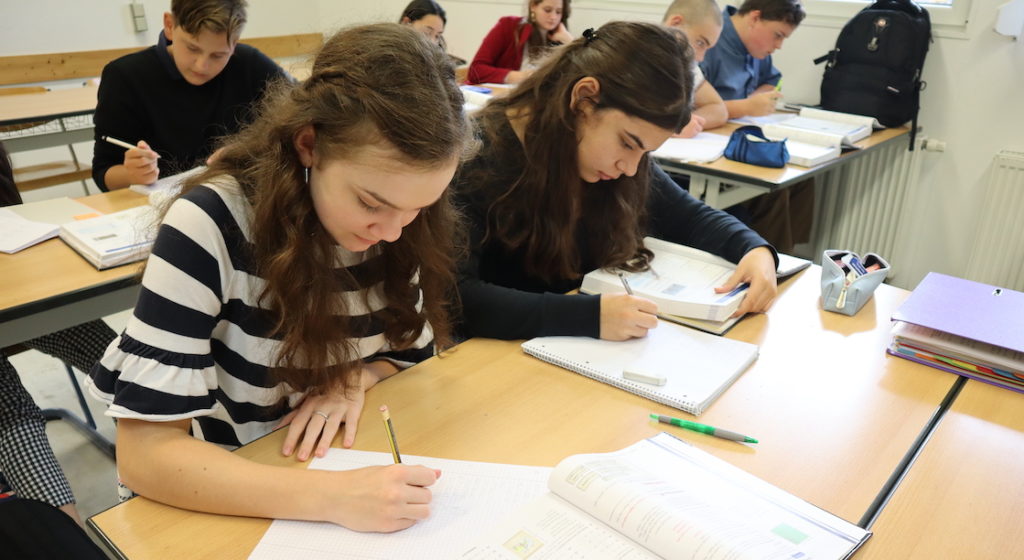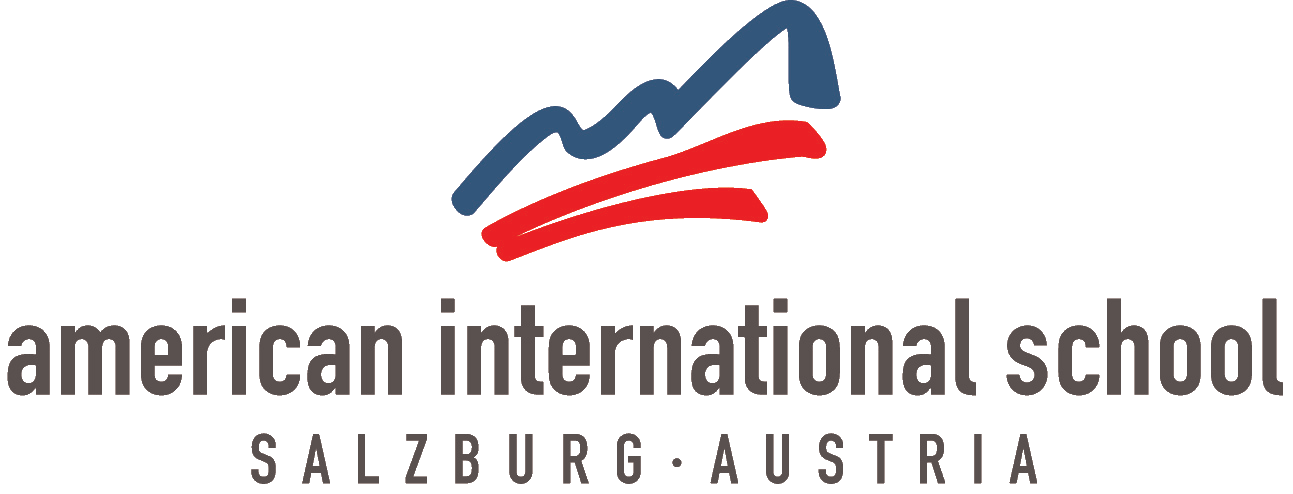
The department of mathematics has a mission to provide all students with a solid understanding of mathematical concepts and the ability to relate and apply mathematics to real-world situations. We strive to maximize our students abilities to solve multi-step problems with and without the aid of handheld technology, thus best preparing them for the ultimate pursuit of a career in mathematics or related fields.
The department of mathematics at AIS-Salzburg believes that mathematics is of the most interdisciplinary use and is therefore considered one of the core subject areas. All students at AIS-Salzburg must be enrolled in at least one full-credit mathematics course each year in the seventh and eight grades, and complete a minimum of three academic credits in mathematics in grades nine through twelve.
It is our goal to make the transition from Jr. High Mathematics to AP Calculus a smooth, seamless journey where the students are able to easily carry forward and relate the key concepts and ideas from their previous course.
Junior High Mathematics is a required academic course for all students in the 7th and 8th grades at AIS-Salzburg and meets daily for a total of five hours per week throughout the school year. Junior High Mathematics I at AIS-Salzburg is a general mathematics course with the purpose of providing students with a broad range of fundamental skills necessary for further study of mathematics at the high school level. The goal of the course is to strengthen students’ understanding of arithmetic while providing a strong foundation for a wide range of mathematical topics. The main topics covered by the course are: expressions and equations, inequalities, ratios and proportions, percents, circles, area and volume, exponents, and probability and statistics. Junior High Mathematics II at AIS-Salzburg is a general mathematics course with the purpose of further developing students’ skills in the fields of Algebra and Geometry. It is a further goal of the course is to provide students with a variety of mathematical tools which can be used to solve problems, while maintaining an appropriate level of academic rigor which is often lacking from application based math courses. The main topics covered by the course are: linear equations and inequalities, exponential functions and sequences, perimeter and area, angles, triangles, and transformations. The course also teaches students how to display and analyse data, and the foundations of mathematical reasoning and proofs.
The Mathematics 9 course is designed to equip students with skills to solve problems more advanced than those seen at the Jr High level. To achieve this goal, in addition to furthering their understanding of algebraic and geometric concepts, students will develop their ability to apply six mathematical process skills: reasoning and proving, reflecting, selecting computational strategies, connecting, representing, and communicating. The development of these skills will prepare students to succeed in further math courses at the high school level. The course covers a wide range of topics including linear and quadratic functions, geometry, and probability. Students who succeed in Mathematics 9 will have developed a broad, solid foundation from which they can develop an in-depth understanding of a variety of mathematical topics.
Mathematics 10 is designed to equip students with skills to solve problems more advanced than those seen at the 9th grade level. To achieve this goal, in addition to furthering their understanding of algebraic and geometric concepts, students will develop their ability to apply six mathematical process skills: reasoning and proving, reflecting, selecting computational strategies, connecting, representing, and communicating. The development of these skills will prepare students to succeed in further math courses at the high school level. The course heavily focuses on the study of functions (linear, polynomial, trigonometric, exponential, logarithmic, rational, and radical). The course also touches on other concepts such as: geometric modeling, sequences and series, and data analysis and statistics.
AP Precalculus enhances students’ understanding of functions and their representations in both academic and applied contexts. The three primary units of the course cover polynomial and rational functions, exponential and logarithmic functions, and trigonometric and polar functions. Students study these topics with a level of rigour appropriate for a first year university course. Students that succeed in this course will be well prepared for any math they may encounter during their first year university courses, regardless of their chosen field of study.
Advanced Mathematics is a full-credit academic course chosen by students in the 12th grade at AIS-Salzburg who do not desire the challenge that AP Calculus represents. Advanced Mathematics meets daily for a total of five hours per week throughout the school year. Advanced Mathematics is a comprehensive mathematics course in which we integrate functions, statistics, and trigonometry and apply the algebra and geometry previously studied. Major objectives of the course include making connections to other areas of mathematics, to other disciplines, and to the real world, the review and extension of ideas about linear, quadratic, exponential, and logarithm functions, as well as polynomial, trigonometric, and circular function, and the ability to collect and interpret statistics through a large variety of methods including circle graphs, histograms, box plots, etc. The Advanced Mathematics course at AIS-Salzburg is generally reserved for students whose mathematics skills do not allow them to take the pre-calculus and AP calculus courses.
AP Calculus is a full-credit academic course which meets the College Board standards of the Advanced Placement parameters for the subject of Calculus. This course can be chosen by students in the 12th grade and meets daily for a total of five hours per week throughout the school year. Senior students who complete the course with success may also choose to sit the Advanced Placement Examination in this subject. Calculus is widely recognized as one of the most fundamental areas of mathematics. This course aims to help students develop an understanding of what calculus is and then to pride them with the knowledge and skills to use it in a number of contexts. It has many uses within mathematics and the sciences generally (e.g. drawing curves, finding maximums and minimums, calculating rates of change such as acceleration, finding areas under curves and the volumes of solids generated by curves. This course is considered preparatory for students who wish to sit the AP Calculus AB Examination in May.
